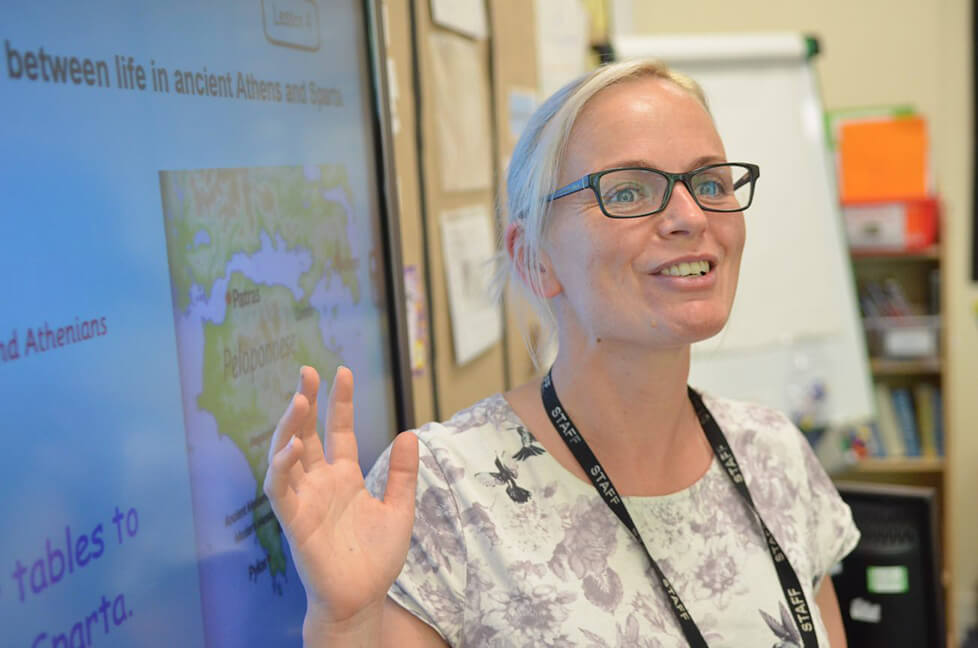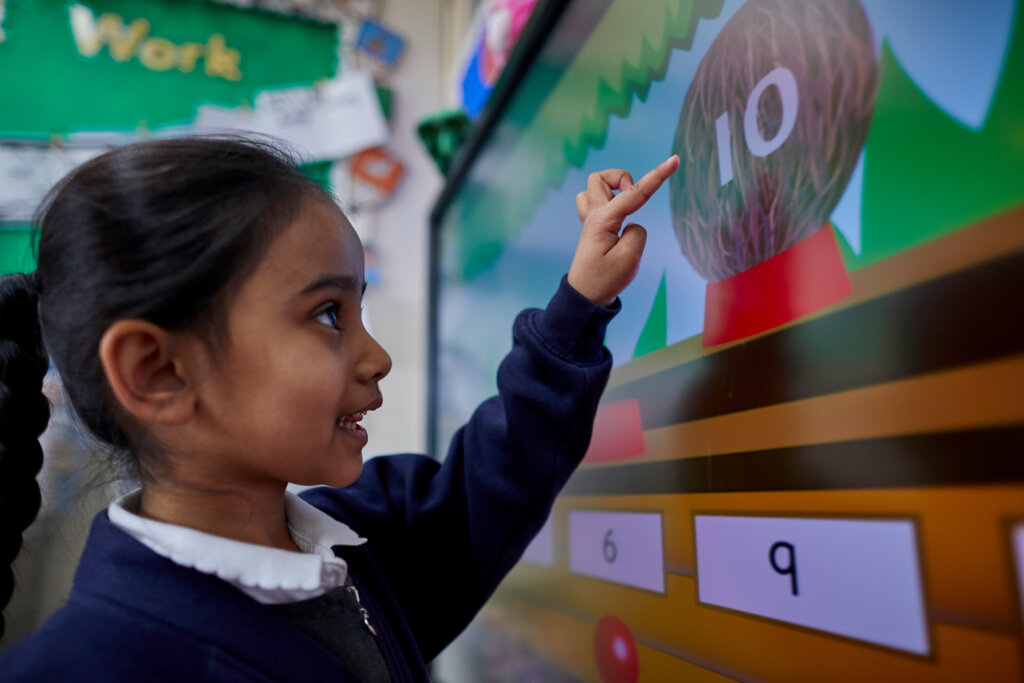The UK government’s definition of forced marriage is: where one or both people do not or cannot consent to the marriage and pressure or abuse is used to force them into the marriage. It is also when anything is done to make someone marry before they turn 18, even if there is no pressure or abuse. Forced marriage is illegal in the UK. It is a form of domestic abuse and a serious abuse of human rights.
Despite this, forced marriage is still happening to young people all over the UK – so what can schools do to safeguard them from this? What do we do if we are worried and how do we report our concerns around forced marriage?
The facts
A forced marriage is where one or both people do not (or in cases where someone may lack the mental capacity, cannot) consent to the union and pressure or abuse is used to force them into it.
A forced marriage is different to arranged marriage. In an arranged marriage both parties give their full consent to the marriage and these are legal in the UK. However, professionals are advised to be aware that Karma Nirvana, a charity working to end honour-based abuse in the UK, say that arranged marriages can often escalate into forced marriages if one participant changes their mind. A forced marriage should not be confused with an arranged marriage. Arranged marriages are common in the UK and are often successful. It is important to note that in February 2023, the legal age for marriage in the UK was increased to 18. So, even where individuals consent to the union, if either person is under the age of 18, this is illegal and should not take place.
Forced marriage is a crime in the UK and there is legislation to protect both victims and potential victims. The Forced Marriage (Civil Protection) Act 2007 (FMCPA) enabled courts in England and Wales to make forced marriage protection orders (FMPO). The FMCPA expressly prohibits the practice, inducement, or aiding of forced marriage (FM), which is defined as: forcing, or attempting to force, another person to enter into a marriage, or a purported marriage, without that other person’s free and full consent, or practising deception for the purpose of causing another person to enter into a marriage, or a purported marriage, without that other person’s free and full consent.
FMPOs are injunctions made by a court to prohibit persons from performing acts that might lead to a named individual being forced into marriage. FMPOs are detailed and case-specific. FMCPA makes it possible for people at risk of forced marriage to make applications, providing protection before a forced marriage takes place.
In 2014 the law was strengthened and as part of the Anti-Social Behaviour, Crime and Policing Act – forcing a person to marry now carries a 7-year prison sentence.
Individuals who are being forced into marriage may be pressured in the form of physical abuse (threats, actual physical violence or sexual abuse), or emotional and psychological abuse (when a person is made to feel like they are bringing shame upon the family). Victims may also be financially abused, for example by having their money or belongings taken from them so that they are solely dependant on their family and cannot seek advice from elsewhere. They may also be persuaded to return to their country of origin under false pretences.
The impact of forced marriage upon the victim can be catastrophic – there have been numerous cases where victims have been continuously abused by their spouse and their in-laws and in some tragic cases, victims have been killed or have taken their own lives.
The figures
Taken from the Forced Marriage Unit statistics (Home Office), of the cases in which the FMU provided advice or support in 2022: 29% involved victims aged 17 years and under, 14% were aged 14 or under.
It is of course important to recognise that forced marriage is still very much a hidden crime. The fact that the FMU are advising people as young as 14 in the UK means schools have to educate their young people around forced marriage and the law. In order for our young people to be safeguarded they must be aware of forced marriage and how they can alert staff if they are worried about either themselves or a friend. They also need to be confident staff will know how to support them moving forward.
What to look out for
As with many complex safeguarding issues that schools come across, it is often difficult to recognise the signs or indicators of forced marriage in isolation. There are often small parts of information or changes to a pupil’s behaviour that will provide a larger picture of concern over a period of time. As always, a strong school ethos and culture around safeguarding will ensure that all school staff are vigilant to concerns and that there are no “it won’t happen here” attitudes apparent. Staff should follow their school’s safeguarding procedures with regards to reporting concerns and should be alert to the following indicators that a child is at risk of forced marriage:
- Changes in the pupil’s behaviour – perhaps becoming withdrawn and contributing less to conversations
- Poor academic performance
- Changes in relationships – no longer friendly with their usual social group or perhaps cutting-off romantic relationships which they feel may not be acceptable to their family
- Signs of physical abuse such as bruising due to the violence enforced upon the victim to pressurise them into marriage
- A sibling discussing the upcoming marriage and/or disclosing their concern for the older child
- A child who has older siblings who were married at a young age
- Discussion of a trip to their country of origin (perhaps during term time) or a child suddenly being absent from school without warning, indicating that they are in immediate danger.
It is important to recognise that more commonly, children are not aware that they are going to be forced into marriage and that if they are aware, they may have been threatened into not speaking to anybody about the arrangement. This of course makes it difficult for schools to detect concerns, but highlights the importance of reporting concerns immediately if staff do become aware of a forced marriage.
What can we do to safeguard our pupils from forced marriage?
As always, raising awareness of forced marriage with the young people in your setting is one of the most preventative and protective forms of action a school can take. By allowing pupils to have open and honest conversations and raising awareness that forced marriage is a crime, the school or college will provide their students with information in a safe and non-judgemental environment. It may also allow students to challenge what they have previously believed or been told and may result in an increase in disclosures. Staff will also pick up on any concerning views or behaviours that are shared or displayed by pupils when discussing the topic, which will allow for further intervention and support at an early stage. Providing pupils with knowledge of forced marriage will hopefully allow them to understand that there are adults in school who can help if they are concerned about being a victim themselves, or if they are concerned about a friend or sibling.
The school may also wish to hold workshops or share information about forced marriage via parental communication systems so that parents are made aware of the legal implications of forcing young people into marriage. It will also give insight into the school’s knowledge of forced marriage and the action that the school will take in order to protect their pupils. Empowering parents and carers with knowledge of forced marriage may result in disclosures from their own experiences, giving them the understanding that their own human rights have been abused. Parents may also raise concerns about their partners or family members forcing their child into marriage although they do not wish for them to do so.
There are many agencies and charities who now offer workshops or deliver assemblies to schools and colleges to discuss forced marriage in an age-appropriate and non-judgemental way. Often these are delivered by individuals who have experience of forced marriage and are relatable. Young people may feel able to seek support from these services as an alternative to members of staff in school. There are also free resources offered by similar services and agencies which are a great way of introducing the topic during form time or PSHE lessons.
There are some great posters available from Karma Nirvana which you can display around school – consider putting them on the back of toilets doors so pupils have privacy if they need the information. There are also some resources available for lessons produced by the Forced Marriage Unit.
Reporting
The government issued a Forced Marriage Consultation back in November 2018 to discuss whether reporting of forced marriage should become mandatory for multi-agency professionals. The home secretary at the time of the consultation, Sajid Javid MP, stated that “we know that forced marriage remains a hidden crime. Victims may stay silent, fearing isolation or worse from their family and/or community. That is why the role of frontline professionals in health, education and social care, who may come across signs of forced marriage, is so crucial.” Although there is currently no mandatory duty for educational professionals to report forced marriage, it is of paramount importance that schools do all they can to safeguard their young people from it happening to them.
School staff should not inform parents or ask for further information if they become concerned about the possibility of a pupil being forced into marriage. This would more than likely put the child at further risk of harm and may result in the child being forced to marry at a nearer opportunity before agencies have the opportunity to intervene.
School staff should inform their designated safeguarding lead of their concerns, and Children’s Services should be contacted immediately. The school may also wish to refer their concerns to the Forced Marriage Unit (020 7008 0151 or email fmu@fco.gov.uk). If the school have reason to believe that a child has already been taken to another country to be forced into marriage, the police should be contacted immediately on 999. Forced Marriage Protection Orders are now in place to protect victims from being forced into marriage and these can be applied for by the victim, family members or someone who has been asked to help them (such as a DSL in school).
A criminal conviction for forcing someone to marry carries a maximum penalty of seven years in prison. Breaching a Forced Marriage Protection Order is also a criminal offence, carrying a maximum penalty of five years in prison or an unlimited fine.
References:
https://www.gov.uk/guidance/forced-marriage
https://karmanirvana.org.uk/get-help/what-is-forced-marriage/
Please complete the form below and we will get in contact as soon as we can to help you with your query.
















